Related Research Articles

Google Scholar is a freely accessible web search engine that indexes the full text or metadata of scholarly literature across an array of publishing formats and disciplines. Released in beta in November 2004, the Google Scholar index includes peer-reviewed online academic journals and books, conference papers, theses and dissertations, preprints, abstracts, technical reports, and other scholarly literature, including court opinions and patents.
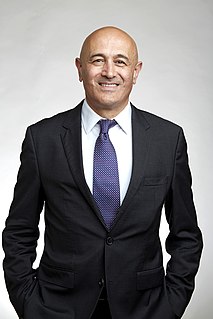
Jameel Sadik "Jim" Al-Khalili is an Iraqi-British theoretical physicist, author and broadcaster. He is professor of theoretical physics and chair in the public engagement in science at the University of Surrey. He is a regular broadcaster and presenter of science programmes on BBC radio and television, and a frequent commentator about science in other British media.
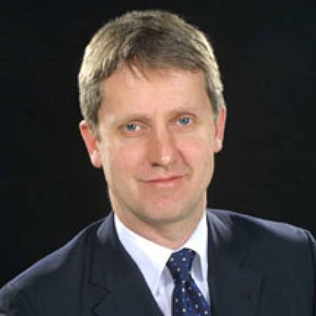
Jonathon Stevens "Jon Driver" was a psychologist and neuroscientist. He was a leading figure in the study of perception, selective attention and multisensory integration in the normal and damaged human brain.

Is Google Making Us Stupid? What the Internet Is Doing to Our Brains! is a magazine article by technology writer Nicholas G. Carr, and is highly critical of the Internet's effect on cognition. It was published in the July/August 2008 edition of The Atlantic magazine as a six-page cover story. Carr's main argument is that the Internet might have detrimental effects on cognition that diminish the capacity for concentration and contemplation. Despite the title, the article is not specifically targeted at Google, but more at the cognitive impact of the Internet and World Wide Web. Carr expanded his argument in The Shallows: What the Internet Is Doing to Our Brains, a book published by W. W. Norton in June 2010.
Hans-Peter Kriegel is a German computer scientist and professor at the Ludwig Maximilian University of Munich and leading the Database Systems Group in the Department of Computer Science. He was previously professor at the University of Würzburg and the University of Bremen after habilitation at the Technical University of Dortmund and doctorate from Karlsruhe Institute of Technology.

Wim E. Crusio is a Dutch behavioral neurogeneticist and a directeur de recherche with the French National Centre for Scientific Research in Talence, France.
The Human Connectome Project (HCP) is a five-year project sponsored by sixteen components of the National Institutes of Health, split between two consortia of research institutions. The project was launched in July 2009 as the first of three Grand Challenges of the NIH's Blueprint for Neuroscience Research. On September 15, 2010, the NIH announced that it would award two grants: $30 million over five years to a consortium led by Washington University in Saint Louis and the University of Minnesota, with strong contributions from Oxford University (FMRIB) and $8.5 million over three years to a consortium led by Harvard University, Massachusetts General Hospital and the University of California Los Angeles.

Adrian Mark Owen is a British neuroscientist and best-selling author. He is best known for his 2006 discovery, published in the journal Science, showing that some patients thought to be in a persistent vegetative state are in fact fully aware and able to communicate with the outside world using functional magnetic resonance imaging (fMRI). In the 2019 New Year Honours List, Owen was made an Officer of the Most Excellent Order of the British Empire (OBE) for services to scientific research.

John O'Keefe, is an American-British neuroscientist, psychologist and a professor at the Sainsbury Wellcome Centre for Neural Circuits and Behaviour and the Research Department of Cell and Developmental Biology at University College London. He discovered place cells in the hippocampus, and that they show a specific kind of temporal coding in the form of theta phase precession. He shared the Nobel Prize in Physiology or Medicine in 2014, together with May-Britt Moser and Edvard Moser; he has received several other awards. He has worked at University College London for his entire career, but also held a part-time chair at the Norwegian University of Science and Technology at the behest of his Norwegian collaborators, the Mosers.
Google Brain is a deep learning artificial intelligence research team under the umbrella of Google AI, a research division at Google dedicated to artificial intelligence. Formed in 2011, Google Brain combines open-ended machine learning research with information systems and large-scale computing resources. The team has created tools such as TensorFlow, which allow for neural networks to be used by the public, with multiple internal AI research projects. The team aims to create research opportunities in machine learning and natural language processing.
Semantic Scholar is an artificial-intelligence backed search engine for academic publications developed at the Allen Institute for AI and publicly released in November 2015. It uses advances in natural language processing to provide summaries for scholarly papers. The Semantic Scholar team is actively researching the use of artificial-intelligence in natural language processing, machine learning, Human-Computer interaction, and information retrieval.
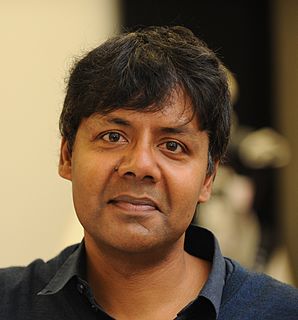
Sethu Vijayakumar FRSE is Professor of Robotics at the University of Edinburgh and a judge on the BBC2 show Robot Wars. He is the Programme co-Director for Artificial Intelligence at The Alan Turing Institute, the UK's National Institute for Data Science and Artificial Intelligence, with the responsibility for defining and driving the institute's Robotics and Autonomous Systems agenda. He co-founded the Edinburgh Centre for Robotics in 2015 and was instrumental in bringing the first NASA Valkyrie humanoid robot out of the United States of America, and to Europe, where is it a focus of research at the School of Informatics. He was elected as a Fellow of the Royal Society of Edinburgh in 2013.

Manfred M. Fischer is an Austrian and German regional scientist, Professor Emeritus in economic geography at the WU-Vienna University of Economics and Business, and Adjunct Professor at the Institute of Geographic Sciences and Natural Resources Research, Chinese Academy of Sciences in Beijing.
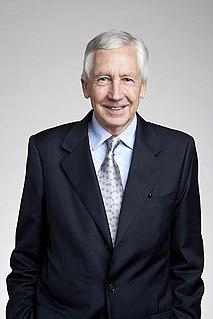
Yves-Alain Barde FRS is a Professor of Neurobiology at Cardiff University. He was elected a Fellow of the Royal Society (FRS) in 2017.

Neil Burgess is a Professor of Cognitive neuroscience at University College London and a Wellcome Trust Principal Research Fellow. He has made important contributions to understanding memory and spatial cognition by developing computational models relating behaviour to activity in biological neural networks.

Rafael Yuste is a Spanish-American neurobiologist and one of the initiators of the BRAIN Initiative announced in 2013. He is currently a professor at Columbia University.

Professor Richard James Gilbertson is a paediatric oncology clinician scientist and a Senior Group Leader at the Cancer Research UK Cambridge Institute, University of Cambridge. He is the Li Ka Shing Chair of Oncology, and Director of the CRUK Cambridge Major Centre and the Children’s Brain Tumour Centre of Excellence.
Kathryn Emma Watkins is an experimental psychologist in the Wellcome Trust centre for integrative neuroimaging at the University of Oxford and a tutorial fellow at St Anne's College, Oxford. Her research investigates the brain processes that underlie speech, language and development.
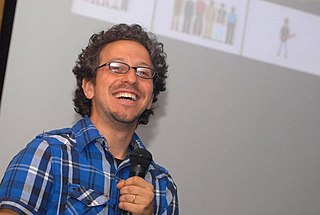
Tristan Bekinschtein is biologist, Master in Neurophysiology and PhD in Neuroscience, Buenos Aires University. He is a university lecturer and Turing Fellow at Cambridge University. Dr. Bekinschtein is primarily known for his work on variable states of consciousness and auditory feedback. He presently runs the Consciousness and Cognition Laboratory at Cambridge University.
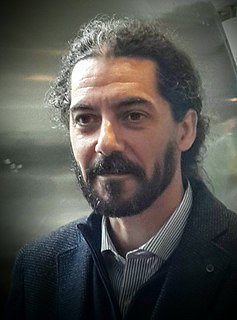
Alfonso Nieto-Castanon is a Spanish computational neuroscientist and developer of computational neuroimaging analysis methods and tools. He is a visiting researcher at the Boston University College of Health and Rehabilitation Sciences, and research affiliate at MIT McGovern Institute for Brain Research. His research focuses on the understanding and characterization of human brain dynamics underlying mental function.
References
- ↑ McIlroy, Anne (2006-12-13). "Some ambidextrous have it both ways". The Globe and Mail. Retrieved 2017-08-31.
- ↑ Chung, Andrew (2008-03-02). "Odds are next U.S. president will be left-handed". Toronto Star. Retrieved 2017-08-31.
- ↑ "BBC - Science & Nature - Sex ID - Study Results". BBC. Retrieved 2017-08-31.